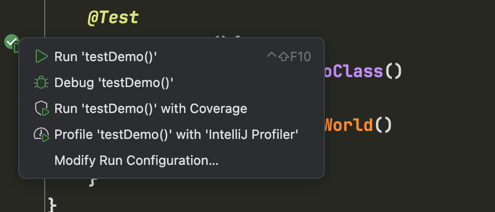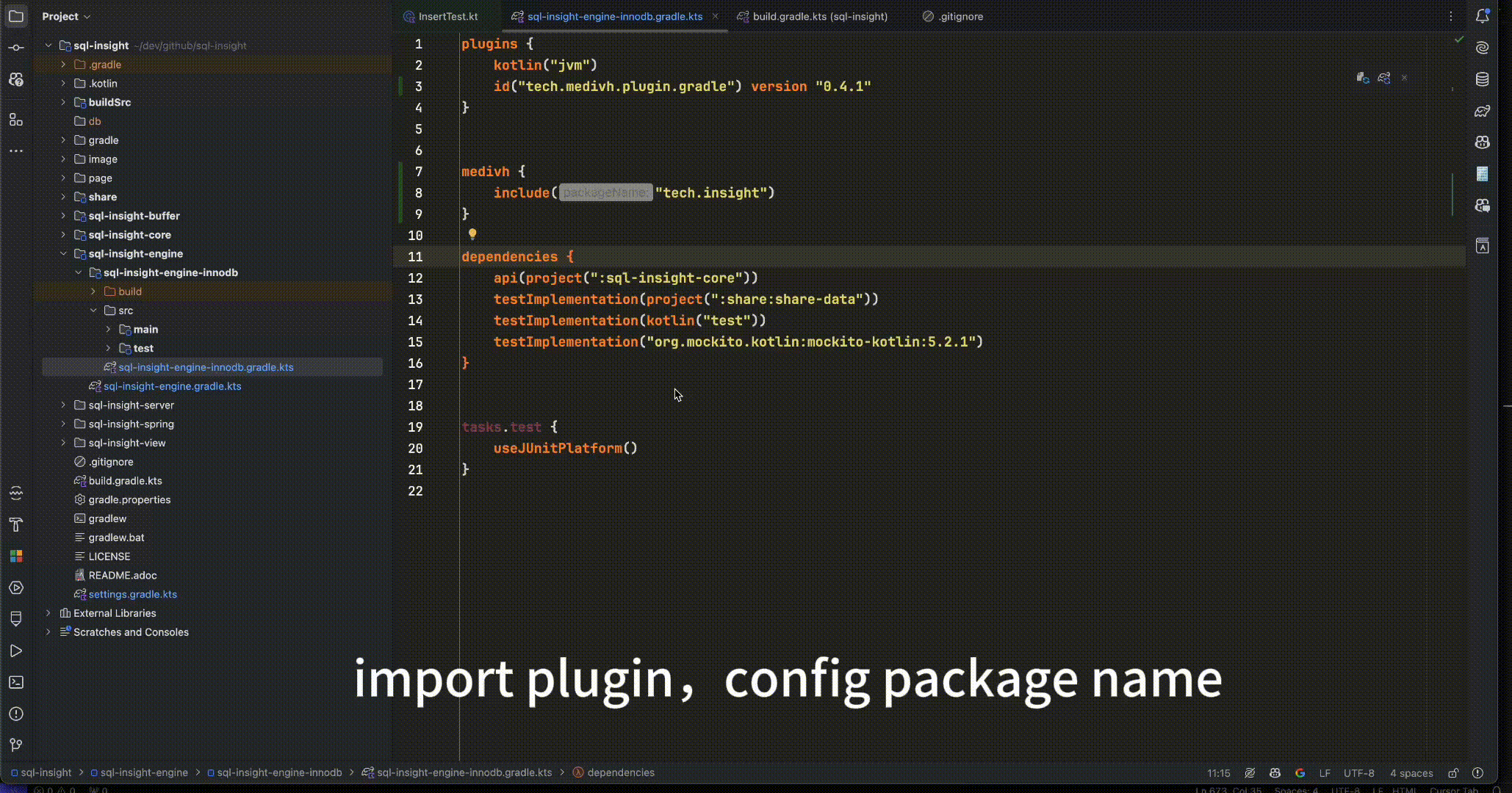Use
Xuan-Zhang Gong
import gradle plugin
id("tech.medivh.plugin.gradle") version "0.4.2"
id 'tech.medivh.plugin.gradle' version '0.4.2'
config Medivh
You can use Medivh in your Gradle file after build
medivh {
include("com.example") // your package name here
}
medivh {
include 'tech.medivh' // your package name here
}
write test case
import org.junit.jupiter.api.Test
class DemoClassTest{
@Test
fun testDemo(){
val demoClass = DemoClass()
repeat(10){
demoClass.helloWorld()
}
}
}
Run case in your IDE

see the console output
you will see output like this:

click the link above, you will see your Medivh report
Complete Process

